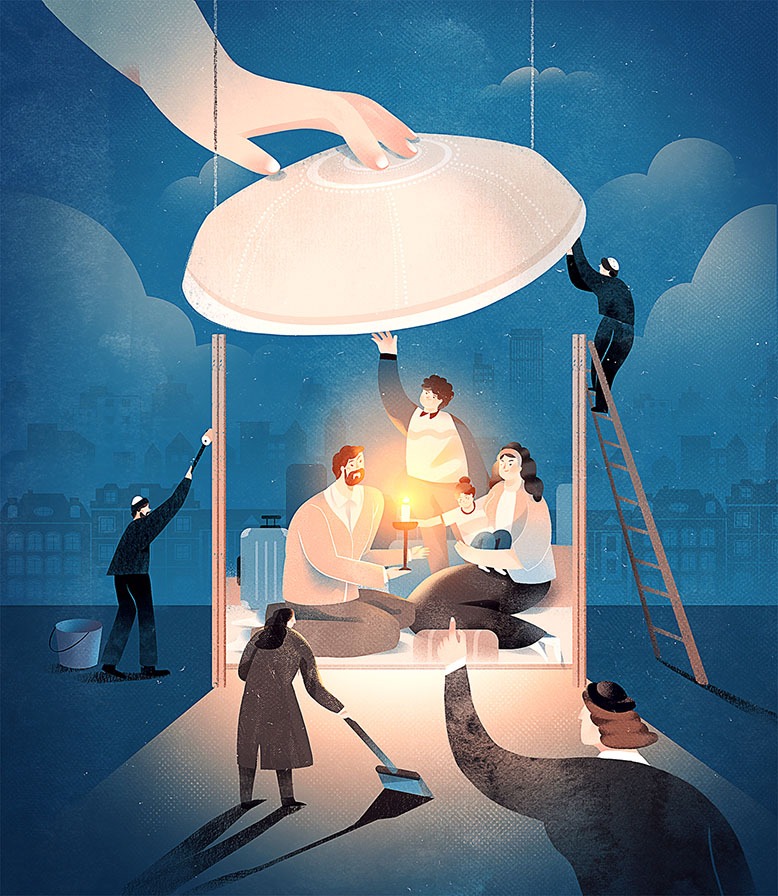
Illustration by Dola Sun
One evening, in 2017, I went to a meeting at my synagogue, Bnai Keshet in Montclair, to join a discussion about converting the apartment above the Hebrew school into a sanctuary space for undocumented or asylum-seeking immigrants. We debated how “free” the family would be to roam the campus of the synagogue and whether ICE agents could stage a raid on the space. Then we went up the steep, narrow back stairs to a neglected set of rooms. There, under the slanted eaves and peeling plaster, shuffling on old planks, we talked about a microwave, sofa, table, beds and painting to turn this into someone’s home.
I am not religious and only half Jewish, but the Bnai Keshet community, during my own times of loss and stress, took me in. When my mother died and I was sitting shiva, a Jewish mourning tradition, I was stunned to have members come to my house and sit with me. It was a level of kindness and inclusion from virtual strangers that I had never before experienced. Now, the effort to shelter vulnerable immigrants caught in an often-unjust immigration system, felt like a larger folding in, a way of imagining sanctuary and community for us as a state and as a nation.
That night, an opening scene for a young adult novel came to me: a family of four arriving in such an apartment and beginning their life in open hiding. I imagined the frightened teenage daughter wondering what her life would be like.
The parallel, of course, is to Anne Frank and her family hiding in the secret annex of an Amsterdam building during World War II. The difference, however, is that sanctuary is open hiding. By providing sanctuary, a religious institution is publicly supporting the concept for immigrants. Real risks exist; ICE could get a warrant and stage a raid, and it is not always clear what would happen to family members who leave the grounds.
It is this tension that struck me as ideal for a YA novel: A teenager confined by political circumstances and, literally stuck with her family, who must try to carry on with school and friends.
My novel, We Are All We Have, ultimately took another direction, becoming a road story about a Pakistani teenager whose mother is swept up in an ICE raid and who must find her own form of sanctuary. I re-imagined the synagogue’s apartment, with the same slanted ceilings and narrow stairwell, as one of her refuges.
In real life, the need for sanctuary became more urgent during 2018-2019, when families were separated at the border, and the very category of asylum was in peril. In Montclair, we all pitched in with paint rollers at the synagogue apartment, preparing it for the first group. Since then, several families have lived there.
My initial inspiration and core idea remained: a group of congregants—wielding paint buckets and brooms—whose flames of caring lit the spirit of my novel, and the dark New Jersey night.
Marina Budhos’ most recent novel is We Are All We Have.
No one knows New Jersey like we do. Sign up for one of our free newsletters here. Want a print magazine mailed to you? Purchase an issue from our online store.



